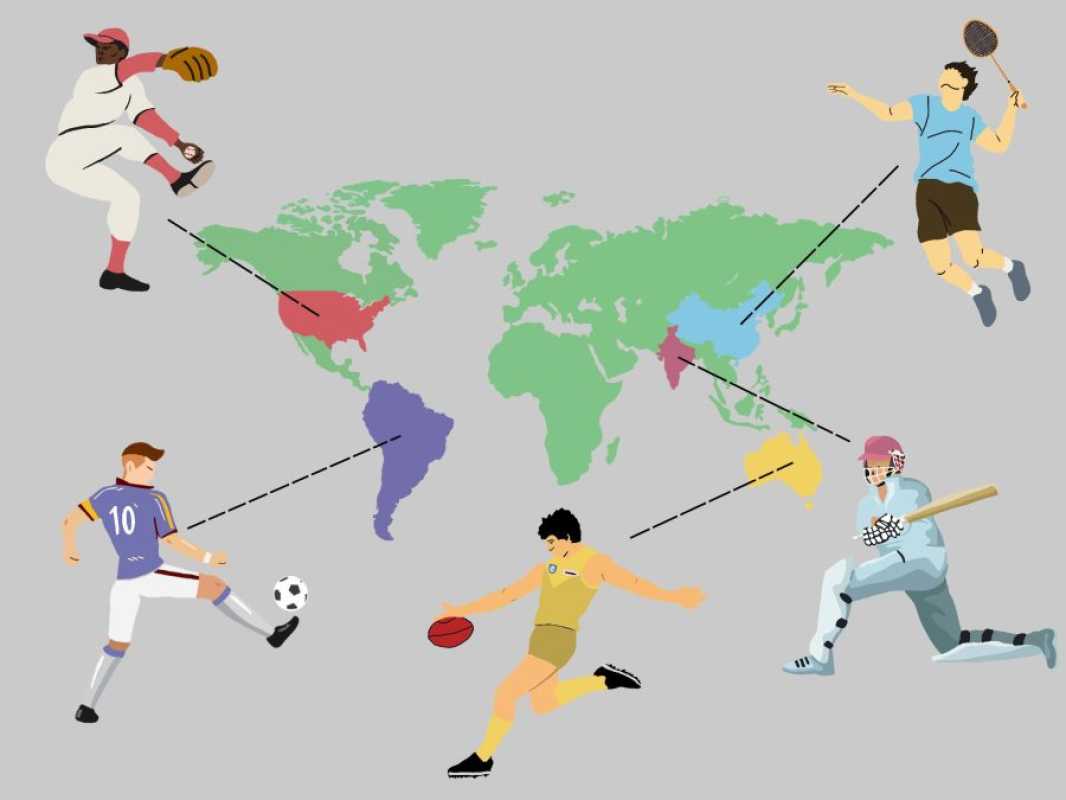Features
The Cultural Significance Of Sports In Different Societies

In societies across the globe, sports play a prominent role in shaping cultural values, promoting social cohesion, and serving as a means of expression. From ancient civilizations to modern nations, the significance of sports extends far beyond mere entertainment. This article explores the cultural significance of sports in different societies, highlighting their impact on identity, unity, and societal development.
Sports as a Reflection of Identity
In many societies, sports serve as a reflection of cultural identity. Different sports have become deeply intertwined with the history and traditions of particular regions or nations. For example, cricket has become synonymous with Indian culture, as it was introduced during the British colonial rule and has since become a unifying force for the diverse population of India. Similarly, baseball has become an integral part of American identity, representing the nation’s history, values, and competitive spirit.
By participating in and supporting sports that align with their cultural background, individuals reinforce their connection to their heritage and strengthen their sense of belonging. Sports provide a platform for showcasing unique traditions and customs, allowing people to express and celebrate their cultural identity in a tangible and visible way.
Sports and Social Cohesion
Sports have the remarkable ability to foster social cohesion within societies. They bring people together, crossing boundaries of age, gender, race, and socioeconomic status. Through shared experiences, teamwork, and competition, sports promote a sense of solidarity and unity among individuals.
For instance, in Brazil, football (soccer) is not just a game but also a unifying force that transcends social classes. When the national team plays, people from all walks of life come together, chanting and cheering for their country. The collective experience of supporting a team fosters a sense of belonging and strengthens social ties. In this way, sports contribute to a cohesive and inclusive society.
Sports and Societal Development
Sports play a crucial role in the development of societies, both economically and socially. Major sporting events, such as the Olympics or the FIFA World Cup, can lead to significant infrastructure improvements, job creation, and economic growth. Host cities invest in building stadiums, hotels, and transportation systems, creating employment opportunities and attracting tourists.
Moreover, sports can address social issues and promote positive change within societies. For example, campaigns against racism, gender inequality, and discrimination have often found a space in the world of sports. Athletes, as role models and public figures, use their platform to raise awareness about these issues and advocate for social justice.
Additionally, sports contribute to individual and societal well-being. Regular physical activity improves health and encourages a healthier lifestyle. By investing in sports facilities and promoting physical education, societies can tackle issues such as obesity and sedentary lifestyles.
Sports as a Cultural Exchange
Lastly, sports serve as a means of cultural exchange, promoting understanding and appreciation of diverse societies. International sporting events bring together athletes from various countries, offering an opportunity for cultural exchange and dialogue. Through sports, societies can learn about different traditions, languages, and customs, fostering global connections and breaking down stereotypes.
Furthermore, the popularity of certain sports transcends national boundaries, becoming truly global. For example, football has a massive following worldwide, with fans from different nations coming together to celebrate the beautiful game. This interconnectedness through sports contributes to a more inclusive and interconnected world.
In conclusion, sports hold tremendous cultural significance in different societies. They reflect identity, foster social cohesion, promote societal development, and facilitate cultural exchange. As a result, the impact of sports extends far beyond the arenas and fields, shaping the values, unity, and progress of societies worldwide.










